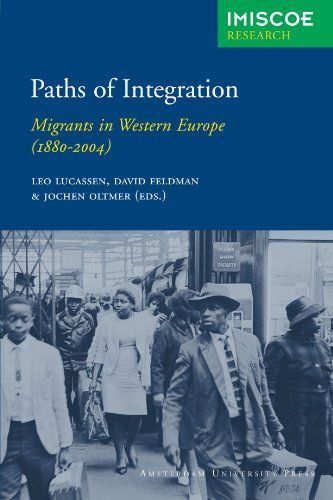
Paths of Integration Migrants in Western Europe (1880-2004)
Why do some migrants integrate quickly, while others become long-term minorities? What is the role of the state in the settlement process? To what extent are experiences in the past different from the present? Are the recent migrants really integrating in another way than those in the past? Is Islam indeed an obstacle to integration? These are some of the burning questions, which dominate the current politicized debate on immigration in Western Europe. In this book, leading historians and social scientists analyze and compare a variety of settlement processes in past and present migration to Western Europe. Identifying general factors in the process of adaptation of new immigrants, the contributors trace social changes effected by recent European immigration, and the parallels with the great American migration of the 1880s-1920s. The history of migration to Western Europe and the way these migrants found their place in the receiving societies, is not only essential to understand the way nations deal with newcomers in the present, but also constitutes a highly interesting laboratory for different paths of integration now and then. By analyzing and comparing a wealth of settlement processes both in the past and in the present this book is both a bold interdisciplinary endeavor, and at the same time the first attempt to identify general factors underlying the way migrants adapt to their new surroundings, as well as how societies change under the influence of immigration. The chapters in the book both look at specific groups in various periods, but also analyses the structure of the state, churches unions and other important organized actors in Western European nation states. Moreover, the results are embedded in the more theoretical American literature on the comparison of old and new migrants. All chapters have an explicit comparative perspective, either by comparing different groups or different periods, whereas the general conclusion ties together the various outcomes in a systematic way, highlighting the main answers to the central questions about the various outcomes of settlement processes. --Publisher.